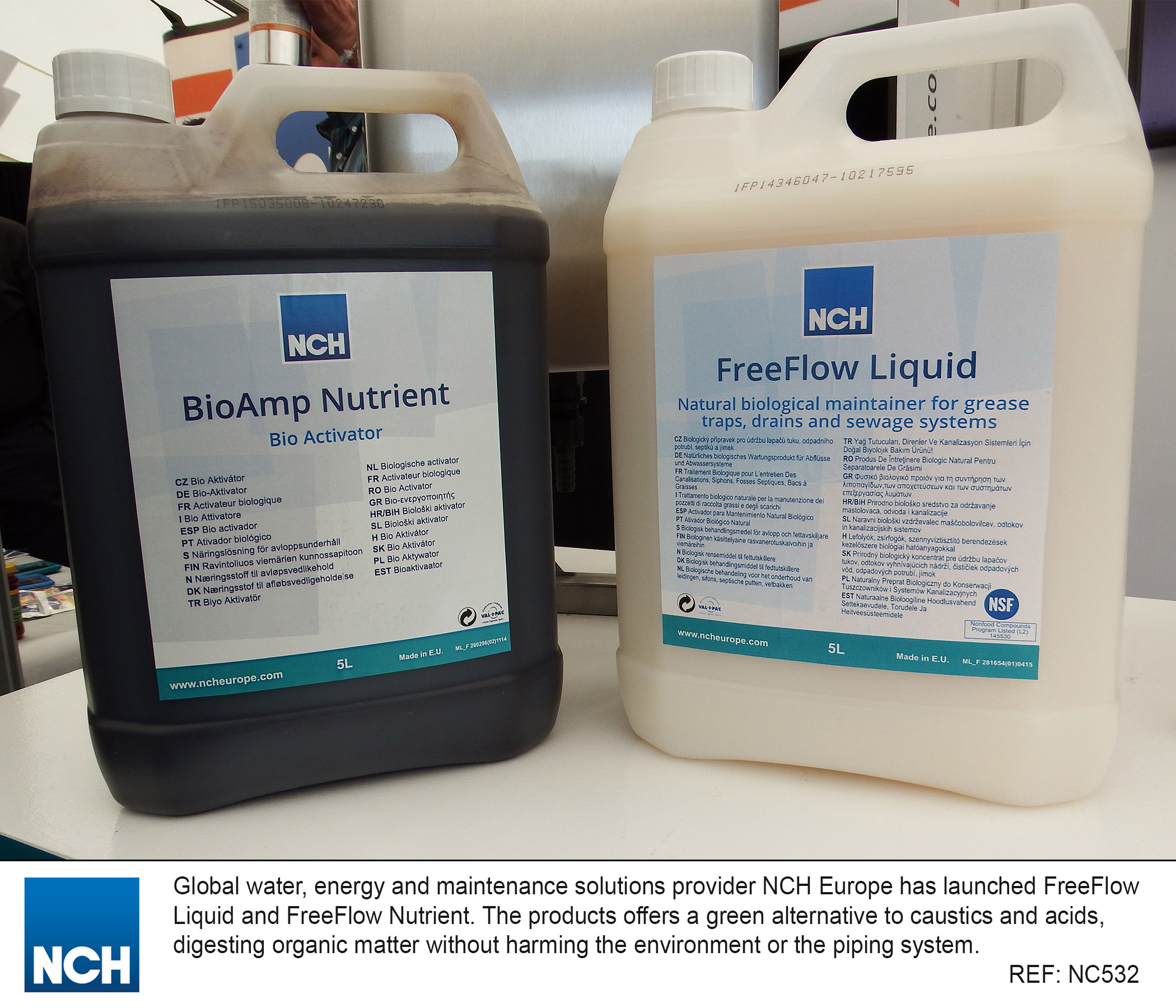FreeFlow Liquid consists of ten strains of aerobic and facultative bacteria that are able to digest organic matter, such as fats, oils and grease (FOG). The bacteria are able to work effectively across the wide range of pH, temperature and low-oxygen conditions that are common in drain lines and grease traps.
The particular strains of bacteria used in the product are food-safe and the product is NSF L2 approved, making it suitable for use in food processing applications. It can also combat the foul odours associated with FOG build-up, as the FreeFlow bacteria outcompetes sulphur-reducing bacteria and prevents H2S gas from forming.
“Food manufacturing plants often encounter difficulties with waste water supplies,” explained Bernard Daymon, CEO of NCH Europe. “Due to the nature of the products being processed, grease traps and drainage lines are often clogged with FOG and organic matter. This can lead to non-compliance, as well as a pungent odour and the risk of flooding or drain damage.
“Often businesses will use hazardous or caustic drain line un-blockers, which can actually damage the piping itself. Some are even classed as toxic, making them harmful to both staff and the environment, driving up costs even more.
“Biological solutions such as FreeFlow Liquid are safe for staff to use and eat away all of the organic build-up without causing additional damage to the piping system itself. By also being environmentally-friendly, businesses can avoid additional discharge fines and can minimize their waste water disposal costs.”
To ensure the bacteria are highly effective when dispensed, NCH Europe is also launching FreeFlow Nutrient, a bio-activator that boosts FreeFlow bacteria growth. This enables FreeFlow bacteria to become more mobile and break down waste easier.
FreeFlow Liquids are compatible with NCH Europe’s range of automatic dispensers, such as FreeFlow 50 and FreeFlow 100 dosing systems. These systems allow businesses to ensure waste water treatment solutions are dosed effectively and avoid costly under- or over-dosage.







